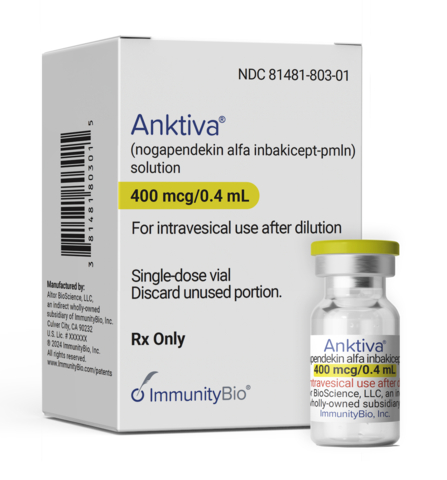The US Food and Drug Administration (FDA) has granted approval for Bristol Myers Squibb’s (BMS) Augtyro (repotrectinib), marking a significant milestone for the treatment of adult patients with locally advanced or metastatic ROS1-positive non-small cell lung cancer (NSCLC).
Augtyro, a tyrosine kinase inhibitor (TKI), is available as oral capsules, each containing 40 mg of repotrectinib. As its active ingredient, repotrectinib inhibits the proto-oncogene tyrosine-protein kinase ROS1 and the tropomyosin receptor tyrosine kinases (TRKs) TRKA, TRKB and TRKC.
“ROS1-positive NSCLC patients and their families face a stressful journey because our cancer can be difficult to treat, especially when it spreads to the brain,” said Janet Freeman-Daily, co-founder and president of The ROS1ders, a patient advocacy organization, in BMS’s press release. “Today’s approval brings a new treatment option for the ROS1-positive patient community, which gives us hope for more time with loved ones.”
The drug’s efficacy and safety were evaluated in the TRIDENT-1 study, an open-label, single-arm Phase I/II trial, focusing on both TKI-naïve and TKI-pretreated patients. The primary measures of efficacy were the overall response rate (ORR) and duration of response (DOR), according to RECIST v1.1 criteria and assessed by a blinded independent central review.
The ORR, which measures the percentage of patients experiencing a decrease in tumor size (partial response) or complete disappearance of cancer indicators (complete response), was significant. In the TKI-naïve patients, the ORR was 79 percent (95 percent confidence interval [CI]: 68 to 88), and the median duration of response (mDOR) was 34.1 months with repotrectinib. In those who had previously received a ROS1 TKI and no prior chemotherapy, the ORR was 38 percent (95 percent CI: 25 to 52) and the mDOR was 14.8 months with repotrectinib.
Importantly, Augtyro showed effectiveness in patients with measurable central nervous system (CNS) metastases and in those with resistance mutations following previous TKI treatment.
In addition, clinical studies indicate that Augtyro has a generally well-tolerated safety profile. The most common adverse reactions, occurring in over 20 percent of patients, included symptoms such as dizziness, altered taste sensation (dysgeusia), peripheral neuropathy, constipation, shortness of breath (dyspnea), lack of coordination (ataxia), fatigue, cognitive impairments and muscle weakness.
“New treatment options continue to be needed for patients with ROS1 fusion-positive NSCLC that support important clinical goals, including achieving durable therapeutic responses,” said Jessica J. Lin, MD, TRIDENT-1 primary investigator and attending physician at the Center for Thoracic Cancers at Massachusetts General Hospital and assistant professor of medicine at Harvard Medical School.
XTALKS WEBINAR: Enhancing Treatments using Targeted Protein Degradation
Live and On-Demand: Thursday, January 11, 2024, at 9am EST (3pm CET/EU-Central)
Register for this free webinar to learn about targeted protein degradation (TPD), an approach using cellular machinery to selectively remove proteins, promising more effective treatments with minimized side effects.
What Is the Price of Augtyro?
Augtyro is expected to be available to patients in the US starting in mid-December 2023. The price of Augtyro is set at approximately $29,000 per month, marking an increase of around 40 percent compared to Pfizer’s ROS1 inhibitor Xalkori (crizotinib) and Roche’s ROS1 inhibitor Rozlytrek (entrectinib). Analysts at William Blair estimate that Augtyro’s sales could climb to $258 million by 2027, contingent on its anticipated approval in Europe next year.
BMS remains dedicated to facilitating access to medicines for cancer patients, ensuring a swift journey to therapy. The BMS Access Support, BMS’s patient access and reimbursement program, is specifically designed to assist eligible patients in initiating and maintaining access to BMS medicines throughout their treatment process.
Other New Treatments for NSCLC on the Market
The FDA has recently approved several other medications for various subsets of NSCLC patients.
In October 2023, the combination of Braftovi (encorafenib) and Mektovi (binimetinib) received FDA approval for treating adult patients with metastatic NSCLC that exhibits a BRAF V600E mutation.
In January of this year, Keytruda (pembrolizumab) was approved as an adjuvant treatment following resection and platinum-based chemotherapy for stage 1B (T2a ≥ 4 cm), stage 2, or stage 3A NSCLC.
Additionally, in November 2022, the FDA endorsed the use of Libtayo (cemiplimab-rwlc) in conjunction with platinum-based chemotherapy for adult patients with advanced NSCLC that do not exhibit EGFR, ALK, or ROS1 mutations.
Promising Drugs Targeting ROS1-Positive NSCLC
Numerous promising treatments for ROS1-positive NSCLC are under investigation to determine their safety and efficacy. One such candidate is unecritinib, a novel derivative of crizotinib, which functions as a multi-TKI. It targets ROS1, ALK, and c-MET in advanced tumors, particularly in ROS1-positive NSCLC.
During the Phase I trial, which included 36 patients evaluated for efficacy, the ORR was recorded at 63.9 percent (95 percent CI: 46.2 percent, 79.2 percent). Moving forward to the Phase II trial, 111 qualified patients formed the primary study cohort and were administered unecritinib. The ORR, as determined by an independent review committee (IRC), was notably high at 80.2 percent (95 percent CI: 71.5 percent, 87.1 percent). Additionally, the median progression-free survival (PFS), according to IRC evaluations, was 16.5 months (95 percent CI: 10.2, 27.0).
These outcomes strongly endorse unecritinib as a potential standard treatment for NSCLC with ROS1 rearrangements, especially for patients presenting with baseline brain metastases or CD74-ROS1 fusions. The encouraging results also suggest that further clinical development of unecritinib is justified, particularly for NSCLC cases involving ALK rearrangements.












Join or login to leave a comment
JOIN LOGIN